Letters
On Theology
An extract of a letter written by our Founding President, Judge Paul William Alexander, in November 1951 to the leaders of YMCA and Y’s Men’s movement. A pointer to our purpose and objectives, our vision and mission.
Y’s Men strive to practice the teachings of Jesus Christ not the theological dogmas which have have been built up around His sayings.
Court House, Toledo, Ohio
November 28, 1951
Dear Gents:
I have always thought that the young and vigorous Y’s Men’s movement should be in the vanguard of the liberals. This is because I have an undying hatred of the divisiveness of theology……. I think the YMCA hurts itself, limits its effectiveness, and in the long run will be able to do less good in this world if it adheres to strict theological lines of demarcation than if it opens its door and admits to membership — and I mean purposeful membership — those who are striving to practice the teachings of Christ — whether or not they accept Him theologically as a personal savior, etc., etc. This way membership would be open to right-thinking Jews, Hindus, Unitarians, Moslems, Shintoists, etc. — but of course they must be right-thinking and must subscribe to the teachings of Christ, although not the theology that has so divided Christianity and cursed mankind.
Yes, theology as such has, in my judgment, been a curse of mankind. You will notice how I steered away from theology in framing our induction ritual and how carefully we avoided any reference to it in all of our statements of purpose and constitutional provisions, etc. We say, in Section 2 of the Induction Ritual, that the Y is “a union of persons acting together for a common purpose. The persons are young men who strive to practice the teachings of Christ.” This has always been construed, as far as I know, to mean the ethical teachings of Christ and not the theological dogmas which have been built up around his sayings. This is emphasized by the fact that to be a Y’s Man has never been predicated upon what a man believes, but upon what he does.
Righteousness is not created by theology. Morality is not born of theological dogma. The virtue of unselfish service which we insist shall be the hall-mark of the Y’s Man is an exemplification of love for one’s fellow man as taught by Christ, and as demonstrated, by Christ on the Cross. But — to exemplify that virtue one must accept that teaching, which is ethical, but need not accept Jesus as his personal savior, which is theological. Else, how could so many Jews and other non-Christians whom it is proposed to exclude be so much better “Christians” than a lot of us Episcopalians, etc…….
If any of us also want to keep our belief in the various theological dogmas……. we may do so. But must we therefore scorn and spurn others who cannot or will not accept these beliefs? Can we never learn not to let theology keep dividing us? The point I am emphasizing is not that we should change our beliefs or our faiths, but that we should not deprive ourselves of the benefits of companionship, fellowship, support, co-operation and collaboration of somebody else who happens not to believe quite all of these dogmas and doctrines or perhaps even not any of them – provided always — and I can’t make this too emphatic — that they accept and strive to practice the ethical teachings of Jesus — which are acceptable to Hindus, Moslems, Buddhists, Jews and Unitarians…….
And right here is where the Y’s Men come in. I think it is up to us to summon the courage and develop the strength to come out and help the Y to assume its rightful position of not only interdenominational leadership but interfaith and inter-religious leadership throughout the world! And I am convinced the Y is the only institution or movement ever created upon which we should pin our faith in this respect.
Specifically to answer any questions that seem not to be answered by the foregoing harangue, each local association is free to determine its own basis of membership. Being part and parcel of the Y we may not do anything other than conform to same. If they consider a Catholic a member, then the Catholic may be a Y’s Man — provided he is otherwise qualified. Same goes for Jews and Hindus. If they do not consider him a member, then neither may we. If one association permits a Unitarian to be a member and he becomes a Y’s Man and we make him our international president, no other association has legal or logical basis to object. These technical and legal answers are simple. It is the ethical and moral issue which we should be concerned about and the question whether we are rising to the challenge of the opportunities presented to us as Y’s Men in the Association movement.

